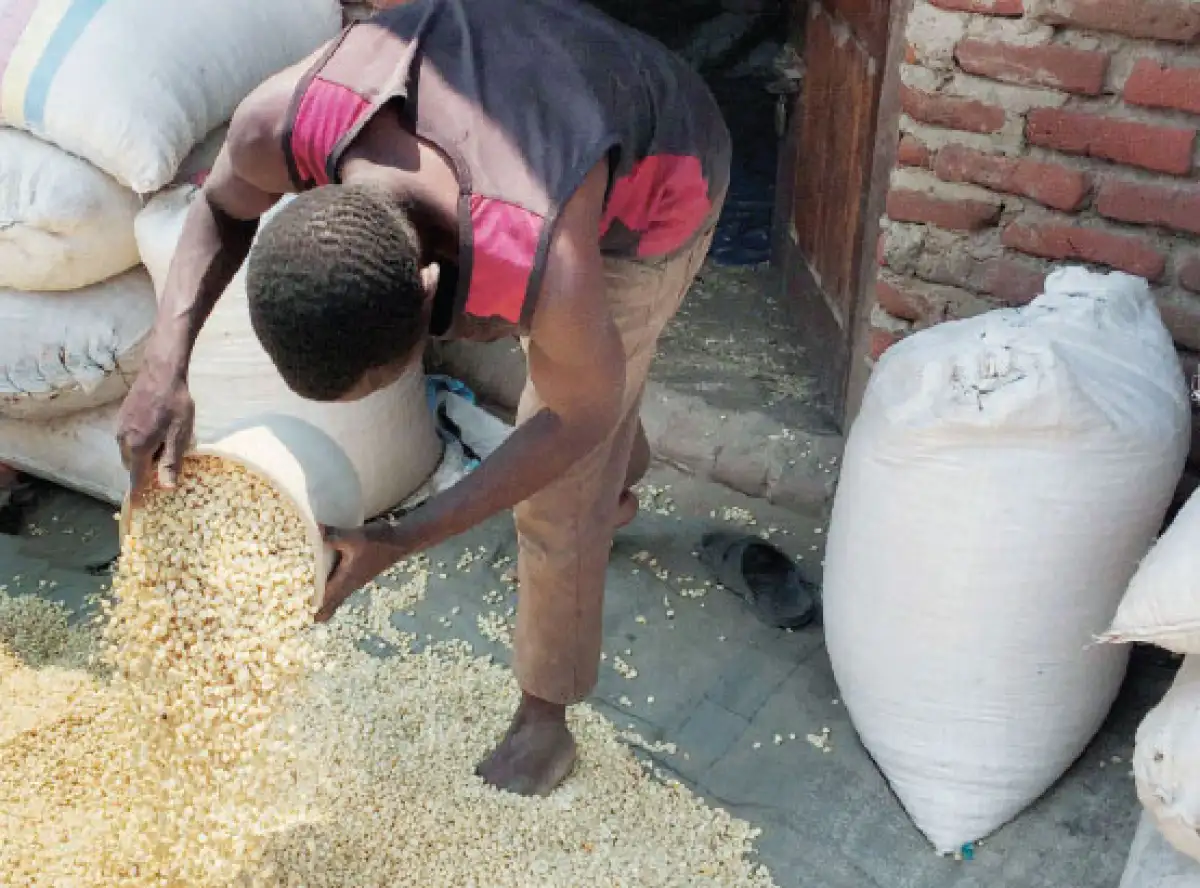Prices of maize, the country’s staple grain, have shown a declining trend following increased availability attributed to relief efforts and the lifting of an import ban.
The Nation spot-checks found that availability of maize in Agricultural Development and Marketing Corporation (Admarc) outlets and distribution of free maize to food-insecure families by the Department of Disaster Management Affairs (Dodma) have increased availability and eased demand in some markets across the Northern Region, especially in Karonga and Chitipa districts.
Chitipa resident Sydney Simwaka said maize measured in a 20-litre pail is going at K12 500, down from K15 000 two weeks ago due to the influx of maize from Tanzania.
He said: “At first it was K10 000, but after that import ban, prices went up. But with the lifting of the ban, the prices have gone down.
“We expect the trend to continue if Admarc depots are filled with maize from the strategic grain reserves [SGR] and if relief maize is distributed.”
In Karonga, the grain is being sold at K11 000 per 20-litre pail, down from K13 500 also due to the influx of maize from Tanzania, according to maize vendors chairperson Eston Mwambuli.
He said: “There is a lot of maize coming from Tanzania, and the demand in Karonga has started going down. Sometimes the price gets down to below K10 000.
“Some people are actually rushing to Admarc to buy it. And with the free maize being distributed, we expect that prices will continue to go down.”
In the Central Region, prices have gradually been going down with a kilogramme fetching K900 yesterday from K1 000 last December at Buli Trading Centre in Traditional Authority (T/A) Mtemambalame in Lilongwe.
At Mitundu Trading Centre also in Lilongwe, maize was trading at K800 per kg yesterday while recently harvested grain from irrigated fields is selling at K700 per kg. In November and December last year, maize was going at K1 000 per kg at the trading centre.
Residents around Nathenje in Lilongwe are buying maize at K840 per kg, but in December it was going at K920 per kg.
In Thyolo, maize prices are hovering around K1 000 per kg while in some parts of Chiradzulu District the prices were at a minimum of K900 with the highest at K1 000. In Mchinji District, the checks found that maize prices were at K700 per kg.
On the other hand, in Nsanje and Mangochi districts, our correspondents indicated that maize prices have gone down to between K50 000 and K54 000 per 50 kg bag from K72 000.
In an interview yesterday, Grain Traders Association of Malawi president Grace Mijiga-Mhango confirmed that maize prices were shifting downwards due to formal imports that have begun trickling in.
She said: “We had a tour recently across the country, in places where Admarc has maize, prices from vendors go down. However, the moment vendors know that there is no maize in Admarc depots, the prices go up.
“Similarly, where Dodma is distributing maize, prices also go down. But overall, we expect that the prices will continue to go down once more maize arrives from Tanzania.”
Mijiga-Mhango further said as people start consuming pumpkins and other farm produce, the demand for maize will decline further.
“This also meaning, prices will continue going down,” she said.
On whether government plans to release more maize from SGRs, Minister of Agriculture Sam Kawale said yesterday they are committed to make it available and ensure that every Malawian has access to affordable food.
He said: “For this reason, the ministry, through Admarc, will continue to distribute maize across the country as a way of stabilising prices.
“As more maize is found in Admarc, together with maize being given by Dodma, allowing importation of maize and flour from other countries and helping people have money through social cash transfer programmes.”
The minister further said due to availability of maize, there will be a significant drop in flour prices across the country.
“This drop in price will continue to happen as the government continues to make maize and flour available across the country,” he said.
In December last year, the SGR Committee allocated 10 000 metric tonnes (MT) of maize to Admarc to be distributed in its 240 markets.
Admarc markets in the Northern Region each received 75 metric tonnes (MT) while outlets in the Central and Southern regions each received 85 metric tonnes.
According to the Malawi Vulnerability Assessment Committee over 4.4 million people are at risk of acute hunger this year due to maize shortage.



















Comments (0)